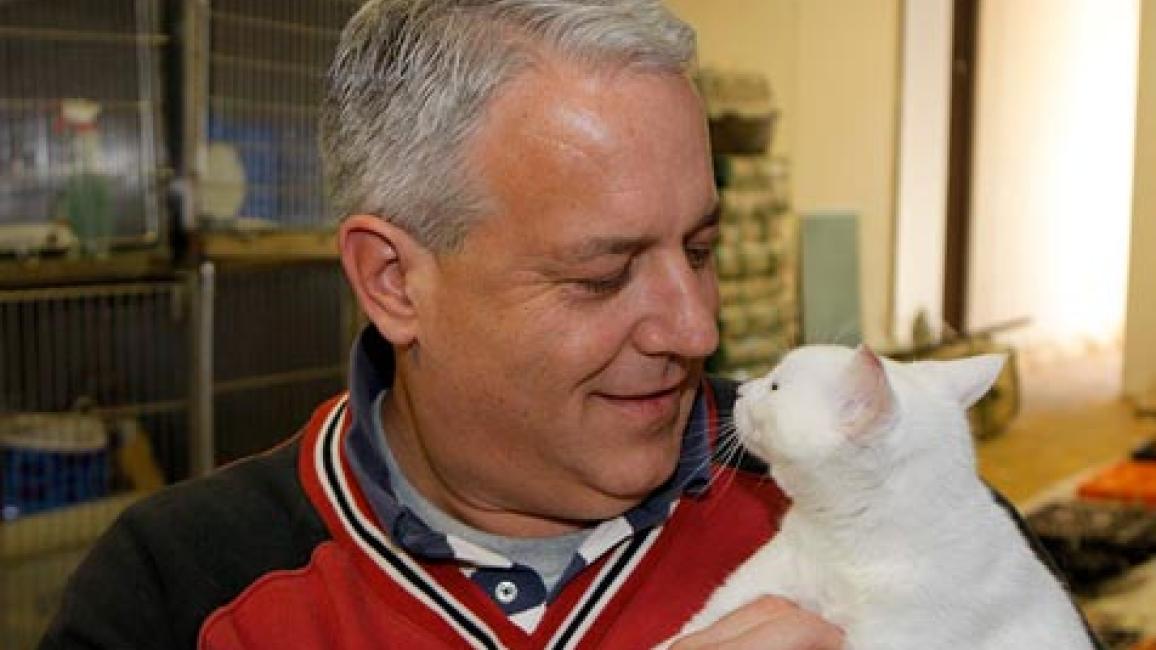TNR program in Jacksonville, Florida

Ebenezer Gujjarlapudi is one of the biggest proponents for a humane solution to the burgeoning feral cat population in Jacksonville, Florida. Fortunately, he’s in a position to do something about it.
"An animal entering a shelter should not be a death sentence," says Gujjarlapudi, who, as the city’s director of environmental resources, answers to just one man – the mayor. And that is very good for the new Feral Freedom program in Jacksonville.
Feral Freedom trap-neuter-return program
Feral Freedom is a landmark public/private partnership aimed at keeping feral cats out of the shelter system. Best Friends is backing the venture, which is being run by First Coast NMHP in cooperation with the city and the Jacksonville Humane Society.
Under the program, all cats taken in by the city’s animal control bypass the shelter system and are brought directly to First Coast No More Homeless Pets, where they receive sterilization, vaccinations, microchips, flea treatment and ear tips. After a night of recovery, they are released back in the neighborhoods where they were captured.
New ideas that work to help cats
The traditional trap-and-kill method of dealing with the feral cat problem just doesn’t work, according to Gujjarlapudi, who added, "Our primary focus is to increase 'live' releases from our shelter. We have the freedom to be flexible, we want to raise the profile of Environmental and Compliance Department animal control, and we want to solve the problem."
"We had some staff that were at first skeptical. We didn’t want to make a huge deal about the new program until we could see some results. And we’re seeing them."
Nearly 1,300 feral cat lives have been saved over the past three months in northeast Florida, thanks to Feral Freedom.
Educating the public is key
Rob Currey has worked as an animal control officer for more than 10 years, the last four in Jacksonville. He wasn’t sure how the public would respond. "Initially," he says, "I was concerned about how the program would work for the people that don’t like cats. Surprisingly, we didn’t get nearly the number of complaint calls that I thought we might. And it’s because First Coast No More Homeless Pets has really helped. They go out and talk to the public. They go into the neighborhoods and listen to people and educate them.
"Feral Freedom has also been a huge morale booster for the shelter staffer and the animal care and control officers. We’ve seen our live cat releases go from in the teens to 50 percent. This program would be great to implement anywhere."
Buy-in from the community for TNR
Karen Padgham, director of customer service at the Jacksonville Humane Society, says, "At first I couldn’t believe that First Coast got the city to agree to it, but the response was immediately so much more positive than negative. What [First Coast president] Rick DuCharme is doing is just great, getting all the right people on board and reaching out to the community."
An important part of the program, according to Padgham, is that First Coast No More Homeless Pets distributes informational packets to all homes in a neighborhood when cats are returned. She says it educates people on how to keep unwanted cats out of their yards without going to extremes.
"As we continue to see results," she says, "we’ll get a bigger buy-in from the community. They love the opportunity to have low-cost spay/neuter and, of course, it’s great that cats are not being killed. The ultimate goal is to diminish the number of community cats, and this is the only situation that is going to make that happen.
"The bottom line is the same for all of us: We want to get to no more homeless pets and the only solution is spay/neuter, not killing."
Photo of Rick Ducharme by Clay Myers